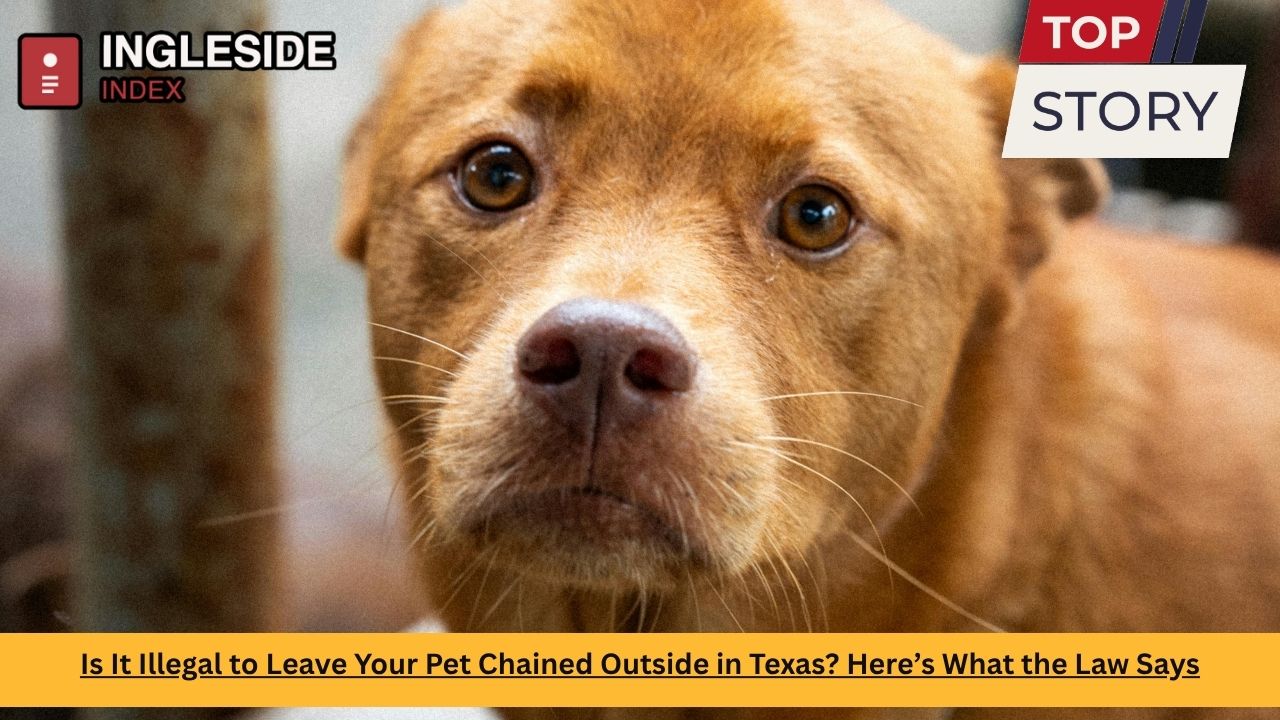Pets are part of the family for millions of Texans. Yet, the simple act of tethering or chaining a dog outside has long been a subject of heated debate, legal tussle, and community concern. If you live in Texas—whether in bustling Houston, historic San Antonio, trendy Austin, or smaller towns like Texarkana or McAllen—it’s essential to understand the laws that protect pets and what is considered both legal and humane when it comes to chaining animals outdoors.
The Evolution of Animal Welfare Laws in Texas
Texas has a history of animal cruelty laws stretching back to the late 19th century. However, in recent years, attention to the safety of pets—especially dogs—kept outdoors, led to sweeping reforms designed to protect animals from neglect and abuse.
The Push for Stricter Laws
Advocacy groups across Texas, from Dallas animal rescue shelters to Corpus Christi’s animal welfare organizations, have documented countless cases where dogs chained outside suffered from exposure, starvation, dehydration, or fatal entanglements. With temperatures in cities like El Paso reaching triple digits in summer and winters bringing ice storms to areas like Amarillo and Lubbock, humane treatment standards for outdoor pets became critical talking points.
The Safe Outdoor Dogs Act: Texas’ Landmark Law
In 2021, after years of public advocacy and political debate, Texas passed a pivotal law known as the Safe Outdoor Dogs Act. The legislation, effective January 18, 2022, brought major changes to how pets, specifically dogs, can be restrained outside across the state.
Key Provisions of the Law
-
Bans on Chains and Heavy Weights: Dog owners can no longer use chains or weighted devices to tether pets outside. The law prohibits tying dogs with materials that can cause injury or pain.
-
Minimum Tether Length: Any restraint used to keep a dog outdoors must be at least 10 feet in length or five times the dog’s body length from nose to tail—whichever is greater.
-
Mandatory Shelter and Comfort Requirements: Dogs left outside must have access to shelter from inclement weather, shade from direct sunlight, and an area free from standing water or excessive animal waste. Clean, drinkable water is always required.
-
Collar and Fitting Standards: Harnesses and collars must be specifically designed to be worn by dogs and must be properly sized.
Enforcement and Penalties
Law enforcement and animal control agencies across Dallas, Houston, Austin, and other Texas cities now have authority to intervene immediately if a dog is found tethered in violation of the law—no more 24-hour grace period for compliance. Penalties for the first offense can include Class C misdemeanor charges with fines up to $500, while repeat offenders face Class B misdemeanors, fines up to $2,000, and possible jail time for up to 180 days.
Local Ordinances: How Cities Go Further
While the statewide law set a minimum standard, many Texas cities have gone further. Below are a few examples of city-specific rules regarding outdoor pet restraint.
| City | Tethering Restrictions | Notable Details |
|---|---|---|
| San Antonio | Complete ban on chaining since 2017 | City may seize animals at risk |
| Texas City | No chaining or tying of dogs on any property | Strictest local rule |
| Texarkana | Unlawful unless holding the tether in person | Temporary tethers allowed in limited cases |
| Houston | Follows state law, enhanced enforcement | Promotes public education campaigns |
| Ingleside | Maximum 3 hours tethering within 24 hours | Restriction on tethering during extreme weather |
| Jamaica Beach | Prohibits chaining or tethering of dogs | Mandates minimum kennel size for enclosures |
This patchwork of regulation means dog owners should always check the local ordinances where they live or travel across Texas.
Why Chains Are Dangerous for Pets
The core reasoning behind these laws is animal safety. Chains and short tethers can cause:
-
Severe neck and body injuries from tangling or sudden jerks
-
Increased risk of strangulation, especially if the dog jumps or runs suddenly
-
Heatstroke and exposure during Texas’ extreme weather events
-
Depression, aggression, and behavioral issues since chained dogs can’t socialize or exercise
Field supervisors from Corpus Christi’s Animal Care Services and veterinarians in Austin note that cases of dog strangulation and injuries dropped after public awareness campaigns on the law.
Exceptions and Permitted Restraint Situations
There are exceptions in the law to account for practical situations such as:
-
Temporary restraint while owners are present (e.g., during veterinary treatment, grooming, or cleaning the yard)
-
Restraint during lawful animal events
-
Tethering when camping or in recreational areas, provided the owner remains with the pet
The law does not criminalize owners walking dogs on handheld leashes or using humane trolley systems that allow significant freedom of movement.
Case Studies: How Municipalities Respond
Houston
As one of the largest metropolitan areas in the country, Houston has seen robust enforcement of outdoor tethering laws. Animal control partnered with community groups to distribute information and resources—such as free doghouses and harnesses—to low-income neighborhoods, ensuring compliance without unnecessary pet removals.
San Antonio
With a long history of animal welfare cases, San Antonio authorities routinely respond to complaints of chained dogs, especially during heat advisories and freezing conditions. In recent years, hotline calls related to chained dogs have decreased as the law and educational efforts took effect.
Dallas
In Dallas, chained dogs were often found in neglected city blocks, raising public health and crime concerns. Police and animal control collaborate to rescue animals in distress, with local shelters reporting that rescued dogs find homes faster when their circumstances are highlighted in media campaigns.
Real Stories From Around Texas
In late spring in McAllen, a family faced charges after neighbors alerted authorities to a German Shepherd left tethered under the sun without shade or water. The intervention not only saved the pet’s life but also connected the family to support services.
On the other side of the state in Brownsville, a rescue operation freed multiple neglected dogs chained in backyards during hurricane flooding. Such events reinforce the importance of strict laws in a region prone to extreme weather.
Impact of the Law
The Safe Outdoor Dogs Act and related ordinances have made a significant impact:
-
Texas animal cruelty case filings rose in the months following the law’s implementation, a sign of increased vigilance and reporting.
-
Shelters in cities like Austin and El Paso report decreases in cases of injured or emaciated tethered dogs.
-
Emergency calls related to dog neglect due to chaining dropped as owners adapted to the new law and support programs spread education.
Animal Cruelty Beyond Tethering
Texas law defines animal cruelty broadly, covering not just outdoor restraint but also:
-
Failing to provide adequate food, water, or shelter
-
Transporting or confining an animal in a cruel manner
-
Abandonment
-
Torture, injury, or killing
Charges for cruelty can rise to felony level for egregious acts or repeat offenses. In 2023, a new state law also banned people convicted of animal cruelty from owning animals for up to five years.
What Texans Need to Know
If you own a dog or any pet in Texas, remember:
-
Never tether your dog outside with chains or heavy weights
-
Always provide accessible shelter, shade, and fresh water
-
Use only properly fitted collars or harnesses
-
Make sure the tether is long enough for natural movement
If you see a chained or neglected animal, report it to your local animal control or law enforcement. Cities like Austin and San Antonio have hotlines and online portals for easy reporting and rescue intervention.
Supporting Responsible Pet Ownership
Communities across Texas are mobilizing to ensure pets are treated with care:
-
Free or discounted pet houses in Dallas, San Antonio, and Houston programs
-
Spay/neuter clinics and preventive health care for animals in shelters
-
Pet food drives and care packages for families during financial hardship
Education efforts also emphasize the dangers of leaving pets outside during heat waves or cold snaps, when even a few hours can put animals at risk.
Moving Forward: What’s Next for Texas Animal Welfare
Texas continues to update its animal welfare policies in response to cases and community advocacy. Cities considering bans or restrictions on outdoor chaining take cues from effective programs in larger cities.
Spurred by tragic stories and encouraging rescue outcomes, Texans are building a stronger culture of compassion for pets of every size. Local governments encourage supporters to participate in city council meetings, volunteer in rescue organizations, or help neighbors who may be struggling with pet care.
Conclusion
It is illegal to leave your pet chained outside in Texas under the current law. The state not only bans the use of chains and inadequate tethers but also sets forth clear standards for providing shelter, shade, and safety for any pet kept outdoors. Violations bring legal consequences, and enforcement is getting stricter every year. More importantly, these laws are saving animal lives and fostering a culture of responsible, humane pet ownership from the panhandle to the Gulf Coast.
Pet owners in Texas should take pride in the state’s leadership on animal welfare and be proactive in ensuring pets are part of the family, never left out in the cold, heat, or danger of a lonely chain. If you see or suspect animal cruelty, take action—your call could make all the difference for a Texas pet in need.




